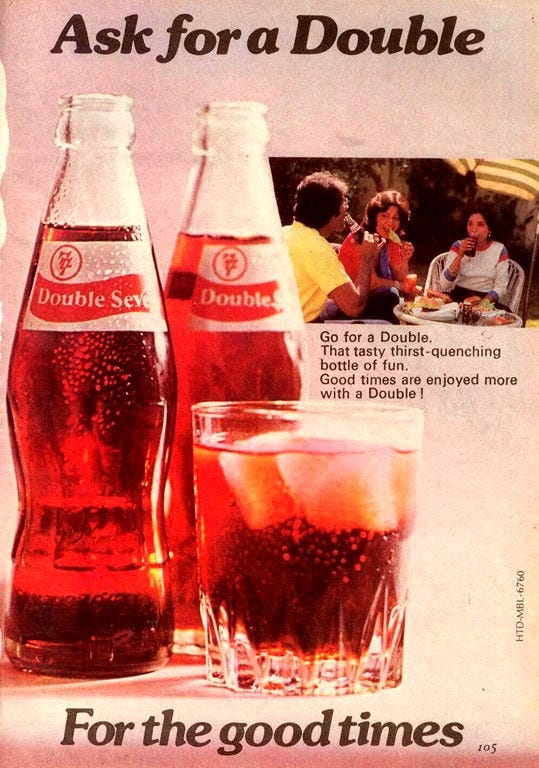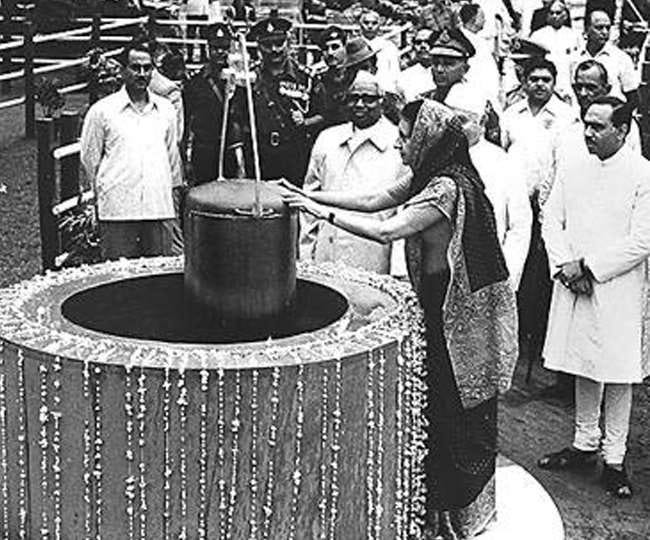Mitron,
Nothing says patriotism more than getting a long weekend thanks to Independence Day. On Thursday, our nation celebrated the completion of 77 years of Independence While it was 77 years ago that we had a tryst with destiny, one of the most pivotal years in India was 1977. It saw the end of the Emergency, the first ever non-Congress government, the first time ever an actor took on the role of Chief Minister (And it wasn’t for a single day only)..and a lot more.
So this week, we take a look at 1977 and why it was a pivotal year for India.
Things we learnt this week 🤓
In 1977, Indira Gandhi decided to end the Emergency and hold fresh elections, which led to Congress’s first electoral defeat and the rise of the Janata Party’s coalition government. George Fernandes, a key figure in the Janata Party, became the Minister of Industries. Coca-Cola, which had established itself in India in the 1950s, faced a challenge when Indira Gandhi enacted the FERA Act in 1974, requiring foreign companies to operate under local ownership and potentially reveal trade secrets. Coca-Cola tried to navigate the Act’s requirements, but in 1977, Fernandes effectively gave them the boot by upholding the FERA regulations and denying any exemptions. With Coca-Cola’s exit, many employees were left jobless, prompting the government to introduce Double Seven, a 'swadeshi' alternative drink named after the symbolic year 1977. It was developed by the Central Food Technological Research Institute (CFTRI) in Mysore. However, Double Seven struggled to compete with established local brands like Campa Cola and Thums Up. When the Morarji Desai government collapsed in 1979 and Indira Gandhi returned to power in 1980, government support for Double Seven waned, leading to its decline. The product eventually faded out, a casualty of both market forces and political shifts.
If anyone reading remembers tasting this drink, please let us know what it tasted like!
In 1973, during the silver jubilee of India's Independence, then-Prime Minister Indira Gandhi buried a time capsule called Kalpaatra at the Red Fort. The gesture, intended to immortalize a version of history for future generations, quickly turned controversial. Critics alleged that the capsule contained a glorified narrative centered on Gandhi and the Nehru family. Fast forward to 1977, the Janata Party, which had just come to power after ousting Gandhi, decided to dig it up. On December 8, 1977, the capsule was exhumed, and its contents were placed in the Parliament library for inspection by MPs. But despite much anticipation and debate, the contents were never made public, leaving the public to speculate about what might have been inside. Dutt Sharma, a member of Parliament from Punjab and chairman of the Parliamentary Committee for Examination of Time Capsules, spearheaded the excavation, arguing that it was necessary to uncover the truth and prevent any possible whitewashing of history. Sharma even suggested that the capsule might contain pictures of Gandhi's son, Sanjay, who had been accused of corruption. The excavation, projected to take two months and cost 15,000 rupees (about $3,000), was accompanied by 24-hour security to prevent any tampering. In the end, despite all the drama and expenditure, the contents of Kalpaatra remain a mystery, a perfect encapsulation of the often opaque intersection of history and politics in India.
They say there are no permanent friends in politics, and the saga of Indira Gandhi and M.G. Ramachandran (MGR) proves it. MGR, a charismatic actor-turned-politician, split from the DMK to form AIADMK and initially cozied up to Indira's Congress. In 1976, Gandhi dismissed the DMK government on corruption charges, clearing the way for MGR. When the 1977 national elections rolled around, MGR aligned with Congress, delivering a staggering 34 out of 39 seats in Tamil Nadu to Indira. But in a twist that only politics can deliver, MGR switched sides just months later, siding with the Janata Party. This manoeuvre helped him clinch the Chief Minister's chair in 1977 after winning the state elections. Fast forward to 1980, Indira Gandhi, back in power, wasted no time settling scores—one of her first moves was to dismiss MGR’s government, showing up like a superstar cameo in films.
From IWTK, with love 💌
Who is Jimmy Fallon paying a tribute to? 😔
Did Kishore Kumar start a viral trend in 2024?
Only In India 🇮🇳
He really wanted to have parathas
<3 IWTK









